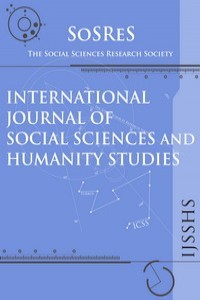CLIMATE CHANGE AND CROP PRODUCTION IN RURAL MAKHADO LOCAL MUNICIPALITY: ASSESSING THE EFFECTS ON HOUSEHOLD SELF-PROVISIONING DURING PRE AND POST 1990 PERIOD
CLIMATE CHANGE AND CROP PRODUCTION IN RURAL MAKHADO LOCAL MUNICIPALITY: ASSESSING THE EFFECTS ON HOUSEHOLD SELF-PROVISIONING DURING PRE AND POST 1990 PERIOD
Many rural households across the globe are known to survive through self- provisioning food production systems. Majority of these households produce agricultural products such as crops and rear Livestock. Over the years, rural household dwellers, particularly those in developing countries have consistently produced enough subsistence food to survive even through tougher economic periods. However, in recent times it is evident that climate change has emerged as one of the most challenging aspects rural household food producers have to deal with. For instance, many food products produced by rural households have been affected and destroyed by different indicators of climate change such as floods; drought and heat waves. The vulnerability context of these households has left them unable to cope, recover and/or produce own crops after a natural hazard occurred. The purpose of this paper is to assess the effects of climate change on crop production with regard to household food self-provisioning in pre and post 1990 period. 30 villages found in Makhado Local Municipality are used for household’s questionnaire survey, key informants were interviewed and different patterns of production process, geo-spatial features and settlements patterns were observed. The data analysis results reflect that different households within the municipality experience a variety of effects of climate change in terms of crop production processes in pre and post 1990 period. There is a huge decline in household food production activities and harvest outputs in the post-1990 period. The paper concludes that there are visible negative impacts of climate change within villages in Makhado Local Municipality in the post 1990 period compared to pre 1990, which are undermining the efforts of households to produce crops for subsistence use.
- Başlangıç: 2009
- Yayıncı: Sosyal Bilimler Araştırmaları Derneği
Sayıdaki Diğer Makaleler
BARRIERS TO COMMUNITY PARTICIPATION IN CRIME PREVENTION IN LOW INCOME COMMUNITIES IN CAPE TOWN
EXPLORING THE ASSOCIATION BETWEEN COMMUNITY COHESION AND CRIME IN THE REPUBLIC OF SOUTH AFRICA
A. A. Olutola Dr., P. O. Bello
NOBEL LAUREATE JAMES M. BUCHANAN’S (1919-2013) CONTRIBUTIONS TO POLITICAL ECONOMY
ANTI-FRAUD TRAINING IN THE SOUTH AFRICAN POLICE SERVICE (SAPS): A STRATEGIC PERSPECTIVE
